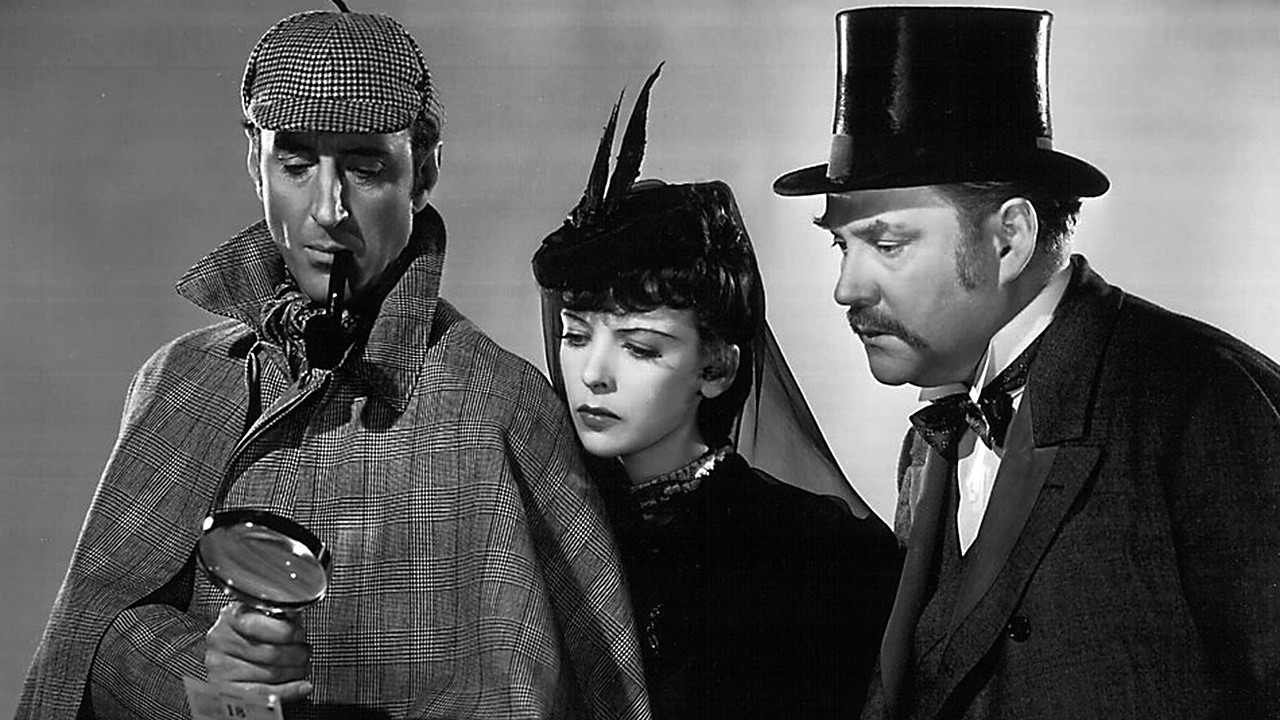In just a few words, a hero can be made. It’s elemental, really. Of course, the Sherlock Holmes of the 21st century is a little bit rougher around the edges, never chained to catch phrases or costumes. It is undeniable, though, that when we hear the name Sherlock Holmes, we are met with a very particular image of a man. Stooping, slightly wiry and ticking to a different pulse than the rest of us, Sherlock Holmes is as close to machine as it is possible for a living, breathing human being to get. Impossibly perceptive, enviably nimbly minded, he views the world him as a series of intricate puzzles, begging to be solved, unnoticed by the lamen brains of the everymen.
Let’s face it, Sherlock Holmes is our favourite detective. There’s no use in trying to deny it. The perfect mix between intellectual, comedian and loner, Holmes is the man that we all imagine we could be, if only we gave a little more attention to the world around us. Sure he’s pernickety and sure he doesn’t have any real friends really. I would give everything up just to be able to pull off a Holmesian reveal with even an iota of the suave charm of the man himself.
Like James Bond and even the beloved Doctor, Sherlock Holmes has undergone a few changes over the years. Since his conception in the mind of Sir Arthur Conan Doyle, he has been reimagined as stuttering, icy, butch and incredibly off beat. It seems that where Sherlock Holmes goes, it is an open playing field. We are free to imagine the universal character in any way that we should so wish. But, the million dollar question remains; which are the best adaptations of the Holmes mythology? Who captured the charm of the detective in the best way and who made the biggest hash of it all? Fear not. I have put on my floppy detective hat, adjusted my moustache and made a few subtle observances. What follows, dear reader, is simply elemental.
Arthur Conan Doyle
Of course, what would a Sherlock Holmes homage be without the real man himself? Despite the longevity of one of literature’s favourite characters, Arthur Conan Doyle originally created the character out of necessity, not inspiration. Working as a writer in the 1800s was no cushy business and there were mouths to be fed. Penning the detective with only a pay cheque in mind, Conan Doyle unwittingly unleashed one of the greatest detective minds ever to have been seen. The original Sherlock is perhaps the best; witty, cutting and every bit as addicted to opium as we think he is, there is no other word for the man than perfection.
Basil Rathbone
Rathbone is famous for perhaps two things relating to Sherlock Holmes. 1). Making The Hound of the Baskervilles possibly the most recognised Holmesian text (with the most cliched of endings). 2). Turning Holmes into a gentleman. Despite the general assumption that Sherlock Holmes was a creature of high breed, the fact is that Conan Doyle had no intentions of the sort. In the book, the character has no qualms about belittling those around him (no more so than the long suffering Watson), and nearly always fails to make any sort of lasting relationship with the people whom he meets. Whilst Rathbone is is no way a bad actor, his refined facial features almost feel too aristocratic to play a true version of Holmes. Holmes was the Victorian anti-social, attention deficit yob. And yet, we loved him for it.
John Cleese
Never one to forget that Sherlock Holmes did indeed have a much sillier side, John Cleese famously parodied the drab and dull perception trough which we had come to view the detective. In The Strange Case of the End of Civilization As We Know It, Cleese reveals the potential ineptitude of the detective, allowing all others around him to suffer with little or no idea about it happening. The short film not only digs its claws into Holmes but also, the detective genre in general. Blowing holes in our tendency to grant detectives super human powers, Cleese suggests that we take it a little less seriously, laugh a little more and enjoy the detective for the ridiculous figure he really cuts.
Robert Downey Jr.
One of two modern reimaginings of the Sherlock Holmes myth, Downey Jr.’s detective is arguably the lesser of the pair. Taking the forefront of Guy Ritchie’s recent reimagining of Conan Doyle’s stories, Downey Jr. plays Sherlock Holmes rather too much on the butch and burly side. Whilst free interpretation is good and all, sometimes Downey Jr’s slapdash approach to the character can feel a little too done for the boys. The characterisation is often missing the subtle idiosyncrasies of the Holmes character which makes him what he is. Teamed alongside Jude Law’s Watson, played as an unsung badass hero, the retelling of the detective seems a little too loud and overblown.
Benedict Cumberbatch
Bringing Sherlock back, Cumberbatch is perhaps (in this completely non-biased writer’s mind) the best and most true representation of the detective figure. Whilst the television series’ presence in contemporary culture can often result in some rather strange reconceptualising of the traditional stories, the character of Sherlock Holmes finds no greater match than the lanky, unbalanced figure of Cumberbatch. The series has just enough balance of light and dark moments, peppered with a nice offbeat humour to really hit its contemporary mark. In Cumberbatch’s Sherlock, Conan Doyle’s stories find their match and are finally able to make their mark as a set of narrative tales which will fit easily into every time and every place.
That is the true mark of a good detective. No matter the story, no matter the context, they should be able to change their face according to the time and fit within any place in the world. For what is more fitting to the detective than a little transformation?

